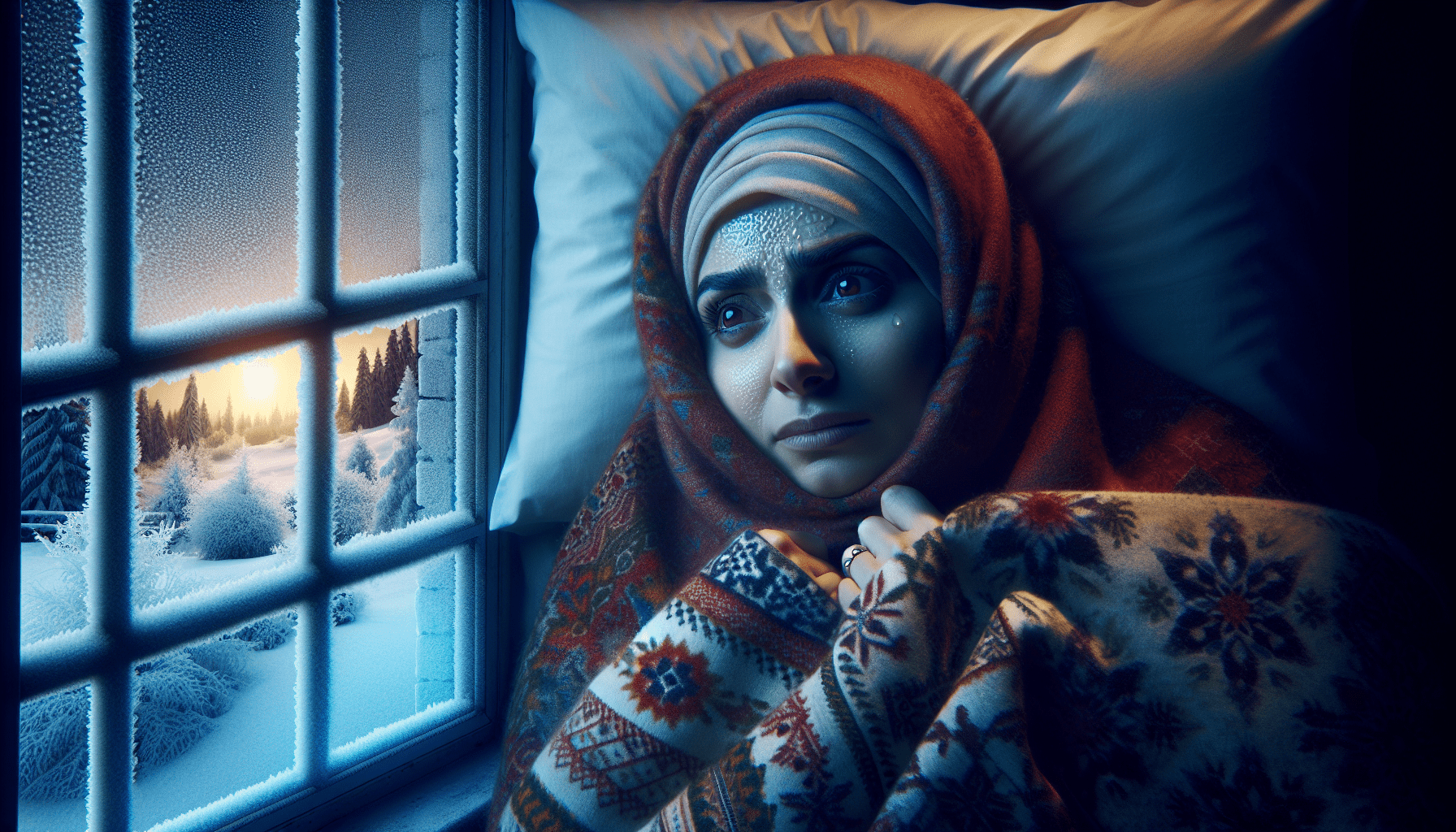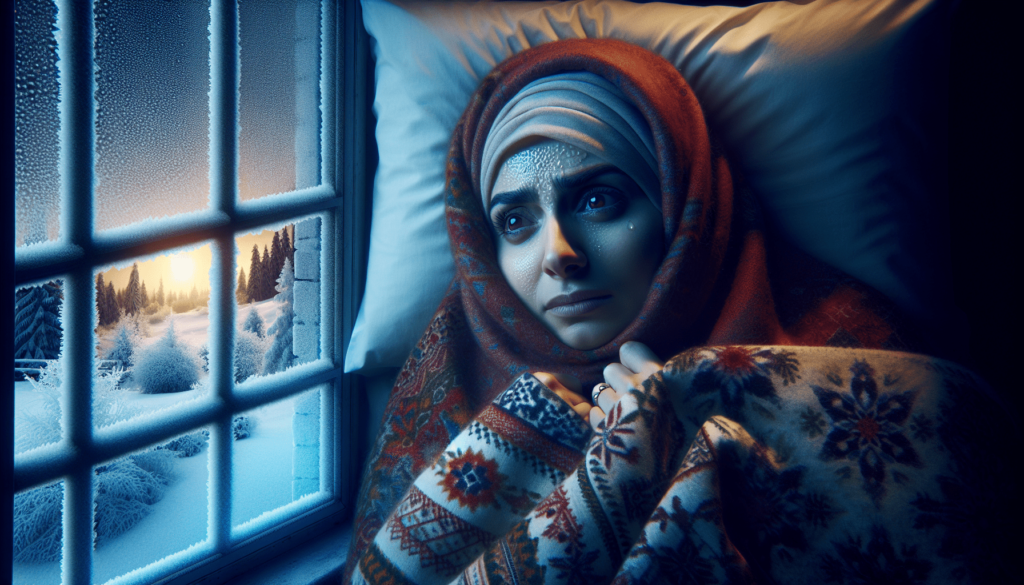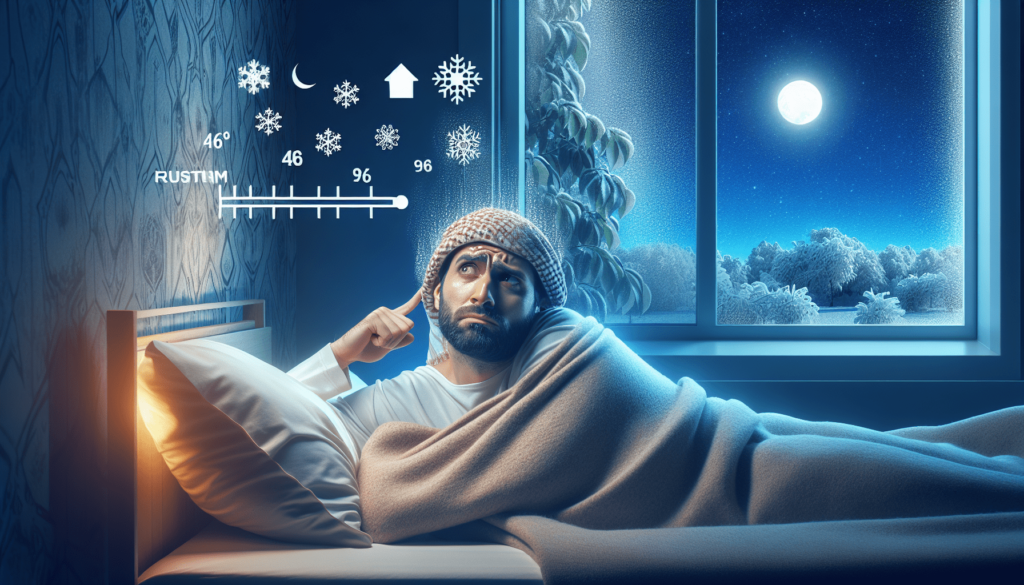
Have you ever found yourself waking up in the middle of the night, feeling uncomfortably hot even though the temperature outside is chilly? You’re not alone! In “Why Do I Get Hot At Night Even When It’s Cold?”, you’ll discover some surprising reasons behind this common phenomenon. From hormonal changes and your body’s natural rhythms to the materials of your bedding and the temperature of your room, there are various factors that can cause nighttime overheating. This friendly guide will help you understand the science behind those midnight sweats and offer practical tips to ensure you can stay cozy without getting too hot.
Why Do I Get Hot At Night Even When It’s Cold?
Have you ever found yourself tossing and turning in bed, feeling uncomfortably hot even though it’s freezing outside? You’re not alone. Many people experience an odd surge of body heat at night, regardless of the surrounding temperature. It’s perplexing and frustrating, especially when all you want is a good night’s sleep. So, let’s dive into why this happens and what you can do to keep cool at night.

Understanding Body Temperature Regulation
The Role of Circadian Rhythm
Your body operates on a 24-hour cycle known as the circadian rhythm. This internal clock helps regulate your wake-sleep cycles, hunger, and essentially your body temperature. Believe it or not, your body temperature isn’t constant throughout the day. It fluctuates, typically peaking in the late afternoon and hitting its lowest point in the early morning hours.
Core Body Temperature
Throughout this circadian rhythm cycle, your core body temperature can naturally rise or fall by about 1 to 2 degrees Fahrenheit. This might not seem like much, but that slight variation can make a significant difference in how comfortable you feel while sleeping.
Influence of Metabolism
During the night, your metabolism continues to function, burning calories even when you’re not active. This metabolic process generates heat, which can contribute to the sudden increase in body temperature.
What Causes Nighttime Heat Surges?
Hormonal Changes
Certain hormonal fluctuations, such as those related to the menstrual cycle or menopause, can cause night sweats and hot flashes. Men, too, may experience night sweats due to low testosterone levels or other hormonal imbalances.
| Hormonal Factor | Impact on Body Temperature |
|---|---|
| Menstrual Cycle | Increase in body temperature during ovulation |
| Menopause | Hot flashes and night sweats |
| Low Testosterone | Night sweats in men |
Stress and Anxiety
Emotional stress can also play a role. Anxiety triggers the release of stress hormones like cortisol, which can increase your body temperature. If you’re anxious about something, that worry might be keeping you up and heating you up too.
Medical Conditions
Certain medical problems might make you feel hot at night. These include:
- Hyperthyroidism
- Infections
- Diabetes
- Autoimmune disorders
Medications
Certain medications have side effects that can increase night sweats and body heat. For example, antidepressants, steroids, and fever reducers might make you feel unnaturally warm during the night.
Sleep Environment
Even if your room feels chilly when you first get into bed, factors like heavy blankets, non-breathable sheets, and even your mattress might trap heat. Additionally, factors like room humidity and lack of ventilation can make the environment feel warmer.
| Environmental Factor | Potential Issue |
|---|---|
| Heavy Blankets | Traps body heat |
| Non-breathable Sheets | Poor ventilation |
| Inadequate Room Ventilation | Reduced airflow and cooling |
How to Cool Down at Night
Choose the Right Bedding
Consider switching to lighter, breathable bedding materials. Natural fibers like cotton are excellent choices because they promote airflow and wick away moisture.
Cool Your Room
Keep your bedroom at an optimal cooler temperature, ideally between 60-67 degrees Fahrenheit. Use fans, open windows, or even invest in a cooling mattress pad.
Stay Hydrated
Drink plenty of water throughout the day to keep your body well-hydrated. Proper hydration can help regulate your body temperature more effectively.
Watch Your Diet
Avoid eating heavy meals, caffeine, or spicy foods before bedtime. These can increase your body temperature and make it harder to cool down.
| Food/Drink to Avoid | Reason |
|---|---|
| Heavy Meals | Increase in metabolic rate |
| Caffeine | Stimulates the nervous system |
| Spicy Foods | Increases body temperature |
Address Underlying Medical Issues
If you suspect that a medical condition or medication is contributing to your nighttime heat, consult your healthcare provider for a proper diagnosis and treatment plan.
When to Seek Medical Advice
Persistent night sweats and feeling consistently too hot at night can be a sign of an underlying health issue. If self-care measures aren’t helping, or if you’re experiencing other symptoms like unexplained weight loss, fatigue, or fever, it’s essential to consult a healthcare professional.
Key Symptoms to Watch For
- Unexplained weight loss
- Persistent fatigue
- Frequent or severe night sweats
- Fever

Conclusion
Feeling hot at night when it’s cold outside is more common than you might think. The good news is, there are plenty of reasons why this happens, most of which are manageable with a few lifestyle tweaks. From understanding your body’s natural rhythms to creating a cooler sleep environment, these tips can help you find relief. However, if you suspect that medical issues are at play, it’s always best to seek professional advice. Your comfort and health matter, so don’t hesitate to take the steps necessary to ensure a good night’s rest.
